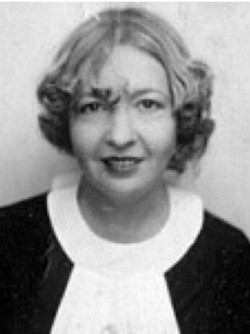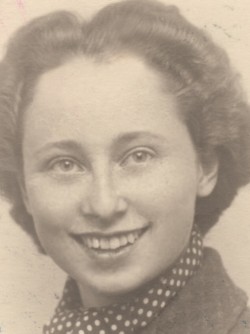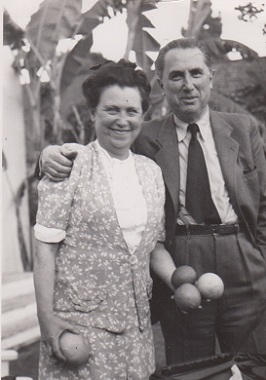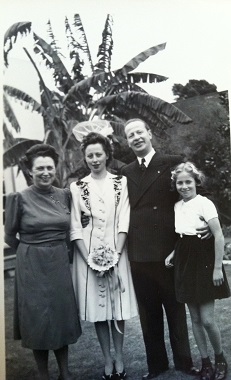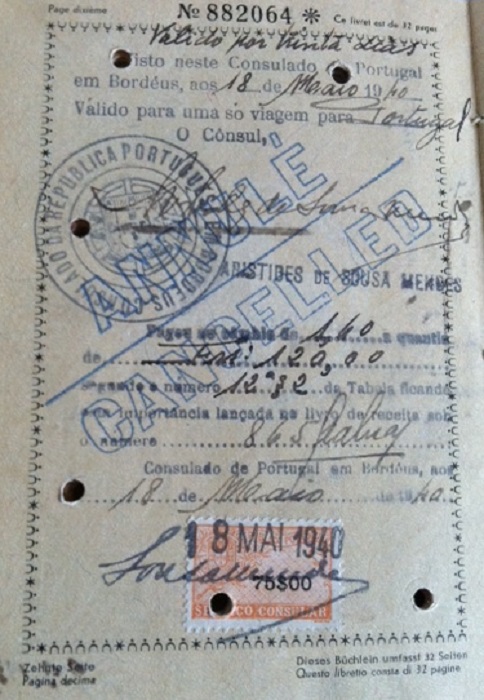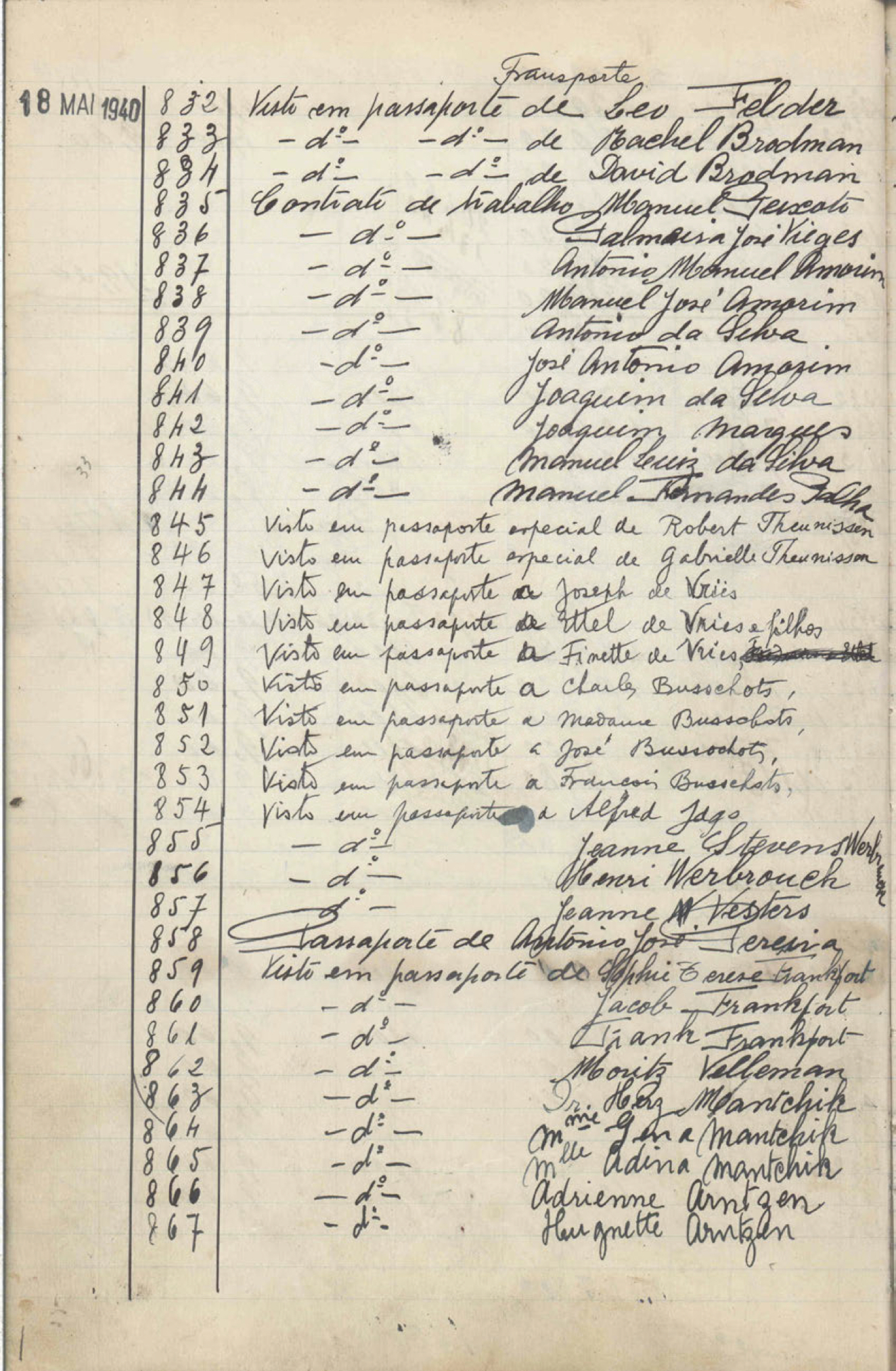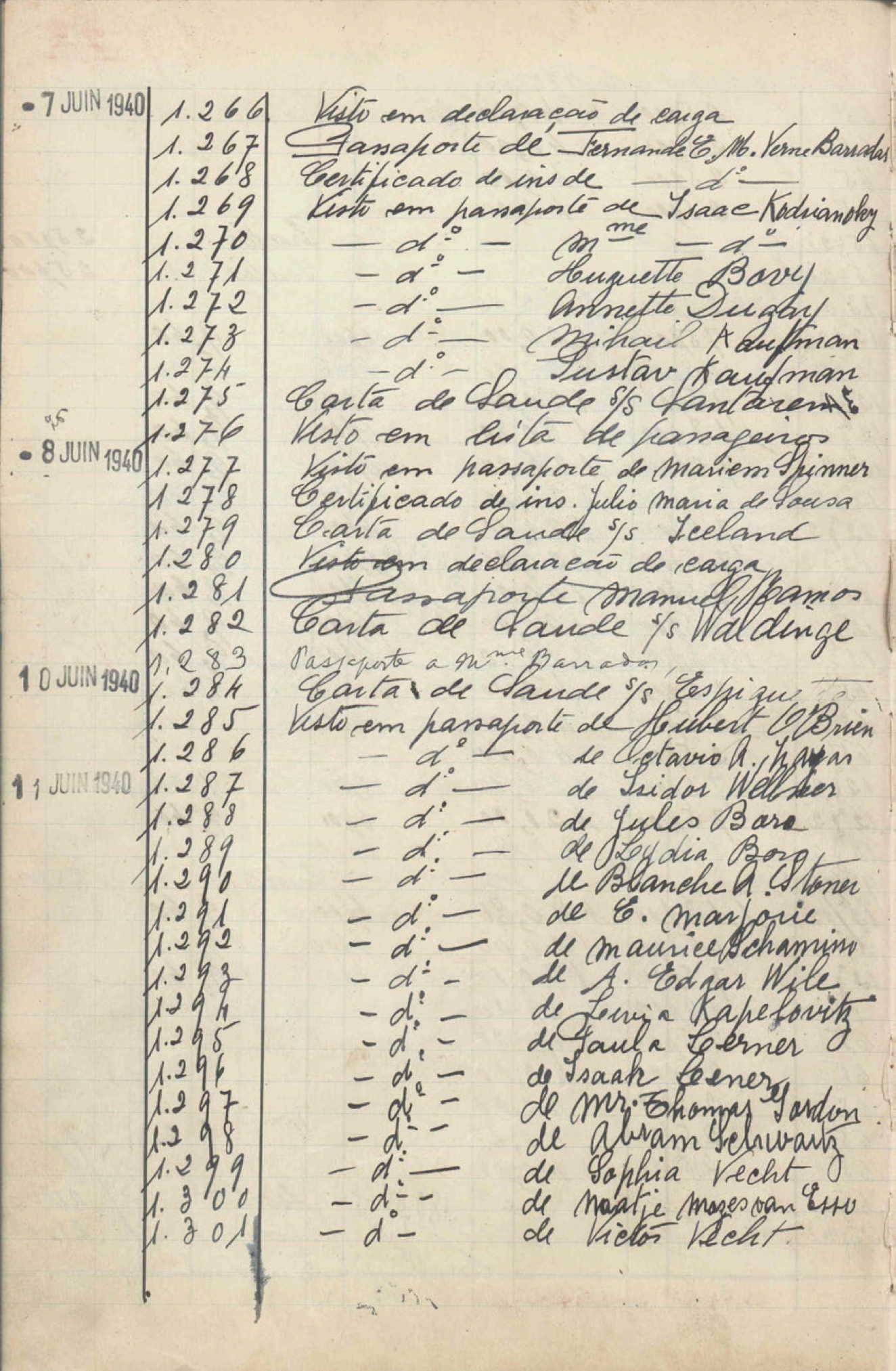Kodriansky/Mantchik
Visa Recipients
- KODRIANSKY, Isaac/Jacques P A
Age 45 | Visa #1269 - KODRIANSKY, Tatiana/Natalie née VON GERNGROSS P A
Age 39 | Visa #1270 - MANTCHIK, Adina P A T
Age 18 | Visa #865 - MANTCHIK, Danielle P
Age 6 - MANTCHIK, Dr. Herz P A
Age 44 | Visa #863 - MANTCHIK, Gena née KODRIANSKY P A
Age 44 | Visa #864
About the Family
The KODRIANSKY-MANTCHIK family received their visas from Aristides de Sousa Mendes in Bordeaux on May 18 and June 7, 1940.
Jacques and Natalie KODRIANSKY remained in Bordeaux, where they boarded the ship George Washington.
The MANTCHIK family crossed into Portugal and boarded the same vessel in Lisbon. Thus the family sailed together to New York in June 1940.
- Photos
- Artifacts
- Testimonial
Testimonial of Adina Mantchik
On May 10th Holland had fallen to the Germans... We took the train to Paris, where we spent the night in an air raid shelter with Uncle and Aunt. They were to follow us to Bordeaux, for which we left the very next morning... Our train trip to Bordeaux took two days. Troop movements kept interfering. We stopped unexpectedly and never knew when we would start again. Inside, passengers sat on top of each other. Outside, there was tremendous disarray. Crowds were pushing in all directions, mostly servicemen. Food was hard to come by. There was none on the train. We made a stop at a small station and I ran out to get something to eat. I was just coming out of the little caf with a loaf of bread, when I saw the train pulling out and Father at the window calling me frantically. I had no ticket and no money! Luckily, in the confusion, they hadn't closed one train door and I jumped in on the run.
In Bordeaux, we arrived ahead of the big crowds of refugees and were able to get a hotel room. People were already having to sleep in cars and public places... We had to push on to Portugal. First, however, we had to cross Spain. The train stopped for an hour at the border town of Irun. Despite the objections of the Spanish R.R. officials, we decided to visit the town. It was a great shock! Only the church was standing. The Civil War had destroyed every other building... The natives would not talk to us... What scared, sinister faces they had... As soon as we crossed into Portugal, magically ... all was smiles ... tidy, inviting, manicured... What a relief!
In Lisbon, we were delighted to hear that an American ship, the S.S. Washington, was due to dock in two weeks... We were able to reserve a third class, bunk bed cabin for four, and we thought that we had reached the end of our problems.
In the wee hours of the morning, a monstrous siren startled us ... so loud that we had to cover our ears. Then the ship stopped so abruptly that I was thrown from my bunk... Our steward entered our cabin without knocking and shouted: "Get dressed at once! Put on your warmest clothes ... take all your valuables ... and hurry up on deck to your life boat!" ... On deck it was freezing cold. The passengers, most of them still in their nightclothes, were grumbling about the stupidity of holding a drill at 4:00 a.m., when it was so cold and windy! ...
Now the crew was gathering up on deck, but now they were not smiling! I asked one of the them what was happening. He pointed at the horizon. "You see the light blinking there? It is a German submarine. It has given us 10 minutes to abandon ship. There are no lifeboats for the crew! We keep signaling to them that we are an American ship but they don't seem to hear us!" ... The ship's morning bulletin explained that indeed it had not been a drill; that we had been stopped by a German submarine based in Spain; and that it had taken President Roosevelt's intervention to get us released. Apparently the Germans meant to give the U.S. a warning! ...
Most of the passengers on board, underdressed and exposed as they had been to the cold, became ill... We took the northernmost route to avoid the mines which dotted the Atlantic... The danger of hitting an iceberg was deemed preferable to being blown up by a mine. By the time we reached New York, I had lost 13 pounds, which I could ill afford to lose, and when the Statue of Liberty finally appeared, I could hardly care.



